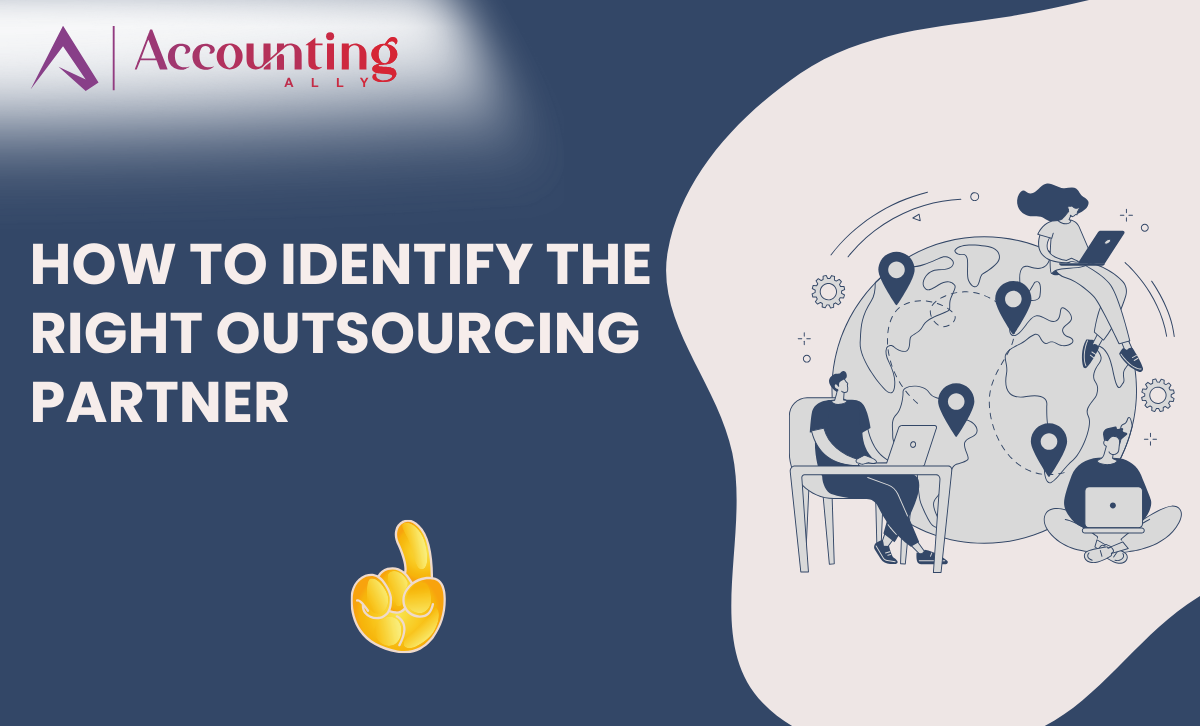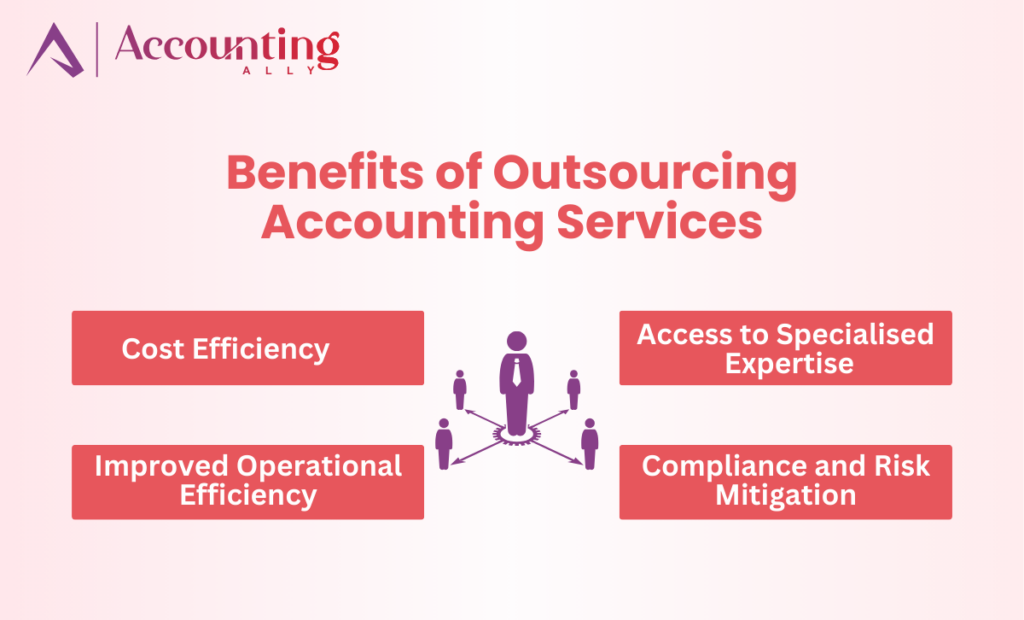How To Identify The Right Outsourcing Partner

The Evolution of Offshore Accounting Services
Offshoring is not a new concept; industries such as technology, manufacturing, and engineering have successfully leveraged it for decades. However, the accounting sector remained hesitant until the global shift caused by the COVID-19 pandemic. This period accelerated the adoption of offshore accounting services, dismantling traditional reservations and resulting in a threefold increase in firms outsourcing their financial operations.
Why Offshore Accounting Has Gained Traction
Several factors have contributed to the rapid growth of offshore accounting services, particularly for businesses in the UK and US. The key drivers include:
- Staffing Challenges – Difficulty in finding and retaining skilled accountants locally.
- Technological Advancements – Increased use of cloud-based solutions that enable seamless remote collaboration.
- Remote Work Culture – The post-pandemic era normalised virtual teams, making offshore staffing a viable solution.
Despite its advantages, choosing the right offshore accounting partner remains a critical decision. To ensure a successful partnership, firms should evaluate potential offshore providers based on key factors such as experience, service quality, and security compliance.
Benefits of Outsourcing Accounting Services
Outsourcing accounting functions provides numerous strategic advantages, making it a viable option for firms seeking to optimise operations. The key benefits include:
- Cost Efficiency
By outsourcing, firms can significantly reduce overhead costs, including salaries, recruitment expenses, and office infrastructure, while still accessing high-calibre professionals.
- Access to Specialised Expertise
Offshore accounting providers offer skilled professionals in areas such as tax preparation, financial reporting, and compliance, bridging the expertise gap for firms that lack in-house specialists.
- Improved Operational Efficiency
Delegating routine accounting tasks allows firms to focus on core business activities, enhancing productivity and enabling strategic growth.
- Compliance and Risk Mitigation
Established offshore providers ensure accuracy, adherence to regulatory requirements, and compliance with UK GAAP, IFRS, and US GAAP, reducing financial risks.
If you are considering offshore staffing, here are essential factors to evaluate when selecting a provider.
9 Key Factors When Choosing an Offshore Accounting Partner
- Management Expertise and Industry Experience
Select an offshore partner with extensive experience in serving accounting firms. A firm with industry-specific expertise understands regulatory requirements, compliance challenges, and best practices, ensuring a smooth integration with your operations.
- Data Security and Compliance
Data confidentiality is paramount in accounting. Ensure your offshore provider follows stringent security protocols, including:
- ISO 27001 / SOC 2 Type II Certifications – Industry standards for data protection and security.
- GDPR Compliance – Ensures proper handling of sensitive client information for UK-based firms.
- Cybersecurity Measures – Implementation of firewalls, data encryption, and multi-factor authentication to prevent breaches.
- Long-Term Talent Retention
Offshore staffing should not be a short-term solution. Choose a provider with a structured approach to employee retention and professional development, ensuring continuity in service delivery.
- Specialisation Over Generalisation
Offshoring is a broad industry covering IT, engineering, and customer support. However, for accounting firms, working with a specialist provider is essential. Avoid generalist firms and select a partner with a deep understanding of accounting processes, compliance requirements, and financial best practices.
- Verified Client Testimonials and Industry Recommendations
Assess your offshore partner’s credibility through:
- Reviews and recommendations from CPAs, CFOs, and industry experts.
- Testimonials from firms of similar size and operational needs.
- Case studies demonstrating successful offshore integration.
- Avoid Freelancers and Small-Scale Operators
Unlike IT outsourcing, accounting requires strict confidentiality, accuracy, and compliance with financial regulations. Engaging freelancers or small-scale firms can pose risks related to service reliability and data security. Opt for an established offshore provider with a proven track record.
- Reference Checks
Speak to existing clients to gain insights into the offshore provider’s reliability, service quality, and responsiveness. A reputable partner should be transparent in sharing references and success stories.
- Detailed and Legally Binding Contracts
Ensure that your offshore agreement clearly outlines:
- Scope of work and service levels.
- Compliance and security commitments.
- Terms related to data protection, breach protocols, and confidentiality.
A well-defined contract ensures accountability and alignment with legal regulations.
- Certifications and Regulatory Compliance
Before finalising a partnership, validate the provider’s credentials, certifications, and compliance policies. These should align with industry standards and regional accounting regulations applicable to your firm.
For further insights, explore our detailed guide: “Why CPA Firms Should Consider Accounts Outsourcing to India.”
Common Pitfalls to Avoid in Offshore Accounting
Many firms face challenges when offshoring due to inadequate preparation or poor provider selection. Avoid these common mistakes:
- Lack of Defined Scope – Clearly outline the responsibilities and expectations to avoid misunderstandings.
- Insufficient Research – Conduct thorough due diligence on the provider’s credentials and client feedback.
- Poor Communication Practices – Establish clear communication channels and reporting structures for seamless collaboration.
- Failure to Monitor Performance – Regularly review service quality and conduct performance evaluations to ensure alignment with your business needs.
By addressing these pitfalls, firms can build a strong and effective offshore accounting model.
Final Thoughts: The Future of Offshore Accounting
Choosing the right offshore accounting partner is a critical decision that impacts efficiency, compliance, and growth. A well-chosen partner does more than reduce costs—it enhances operational capacity, strengthens data security, and provides access to specialised talent.
By evaluating key selection criteria, such as industry expertise, security measures, and long-term sustainability, firms can build a successful offshore strategy that aligns with their objectives.
With Accounting Ally, your firm can achieve scalability, improved efficiency, and access to highly skilled professionals while maintaining the highest standards of compliance and data security.
Frequently Asked Questions (FAQs)
- Is it safe to outsource accounting functions?
Yes, outsourcing is safe when working with a reputable provider that follows strict data security protocols, industry regulations, and legal compliance measures. Always verify security certifications before onboarding a partner.
- When is the best time to hire offshore accounting staff?
While many firms opt for offshore hiring during tax season to manage high workloads, others benefit from year-round support for ongoing compliance, bookkeeping, and advisory services. The best timing depends on your firm’s specific needs.
About Accounting Ally
Accounting Ally is a trusted offshore staffing partner for CPA firms and Businesses across the UK, US, New Zealand and Canada.
As one of the leading offshore accounting service providers, we offer:
- Highly skilled accountants, bookkeepers, and tax professionals.
- A flexible and transparent staffing model.
- Compliance with ISO 27001:2013 standards.
Whether you are looking to enhance efficiency, reduce costs, or scale your operations, Accounting Ally provides a reliable and secure offshore staffing solution tailored to your firm’s needs.
Get in touch today to explore how offshore accounting can transform your business.


